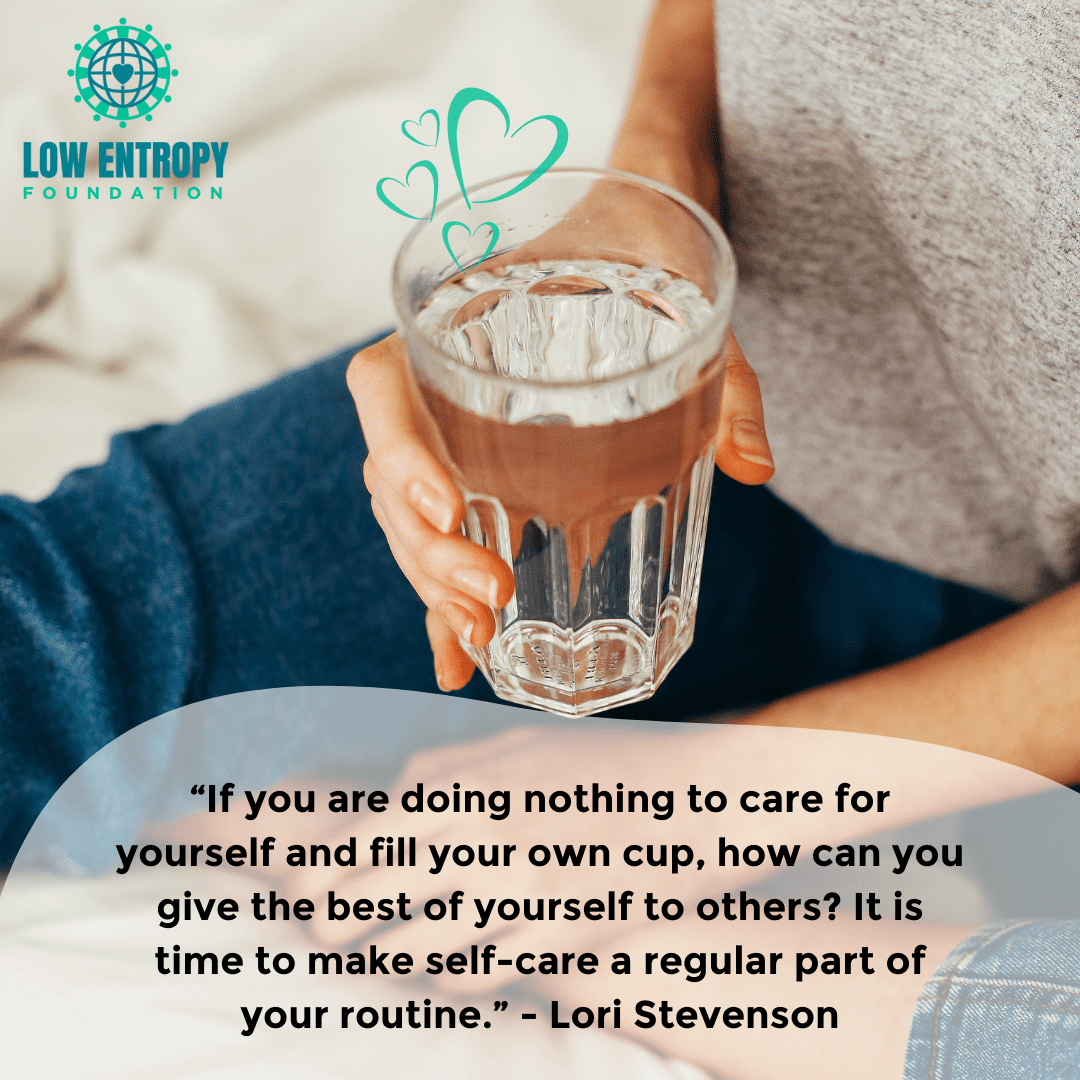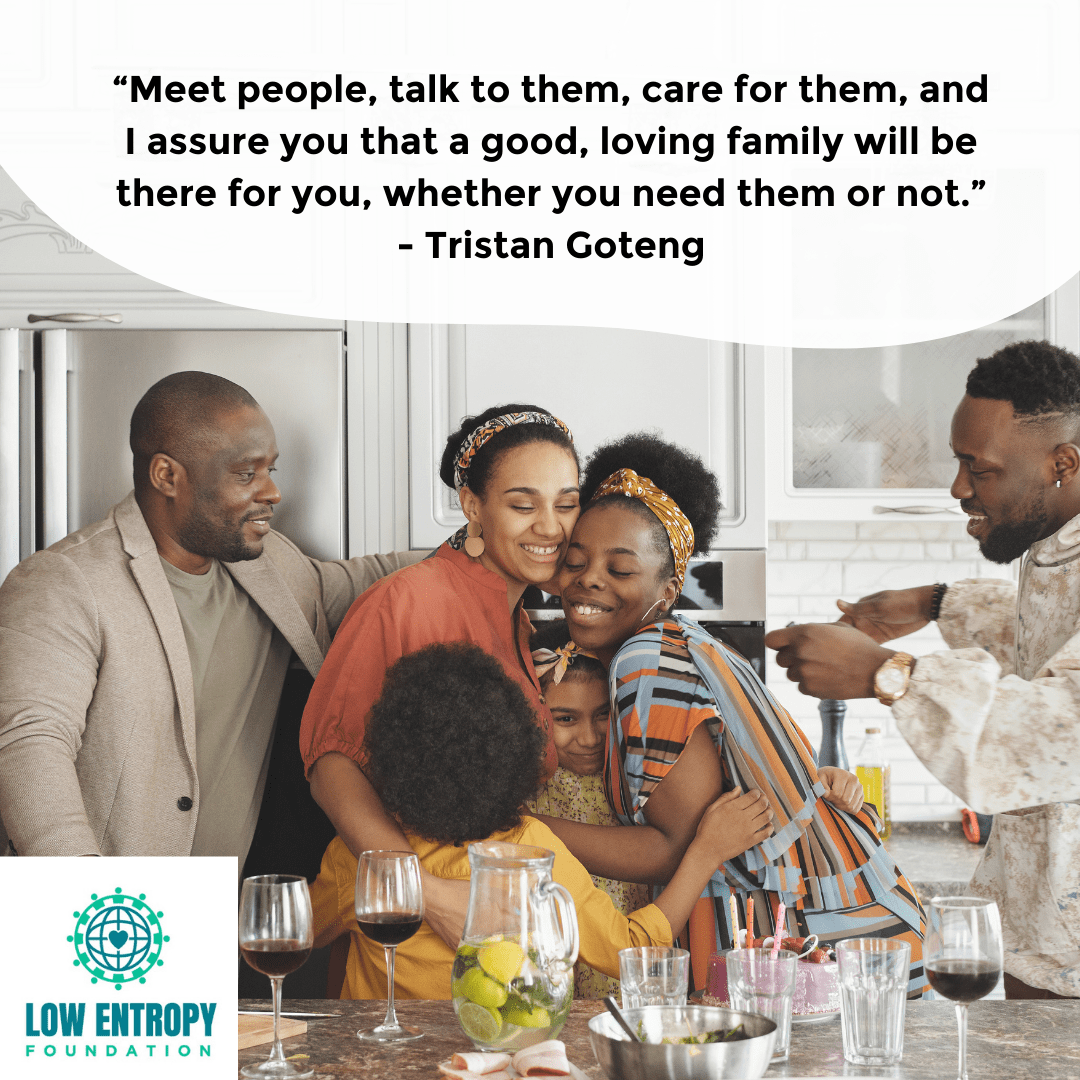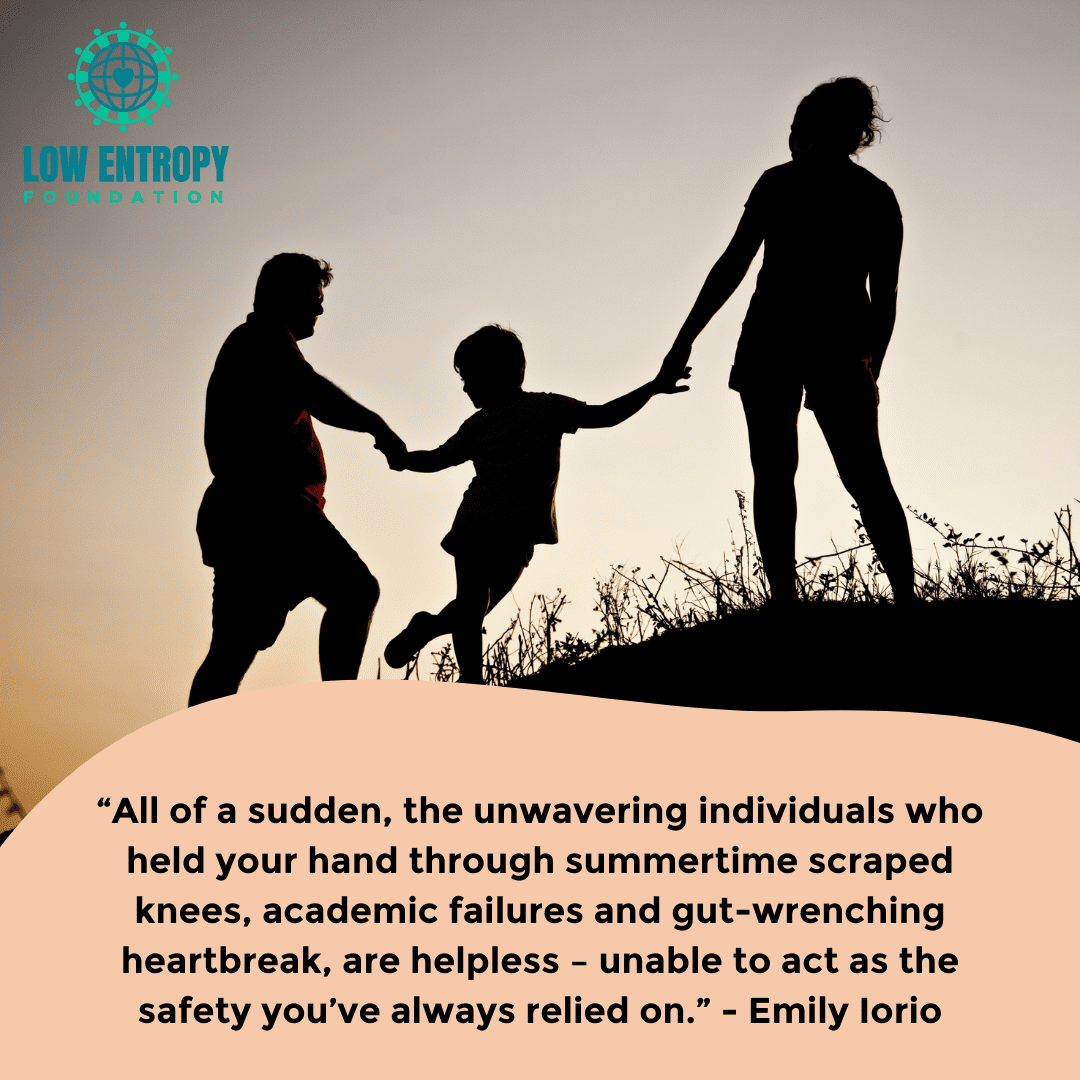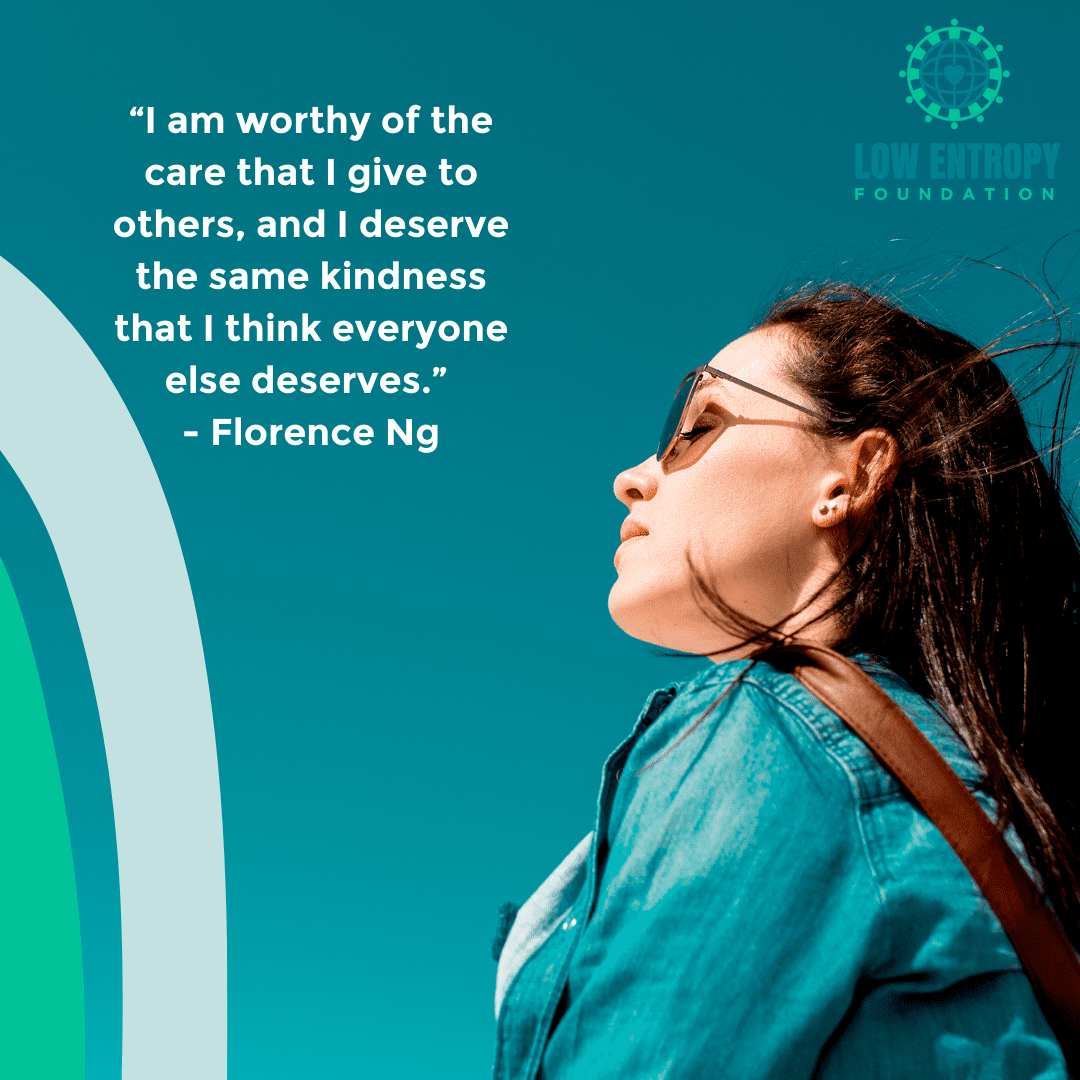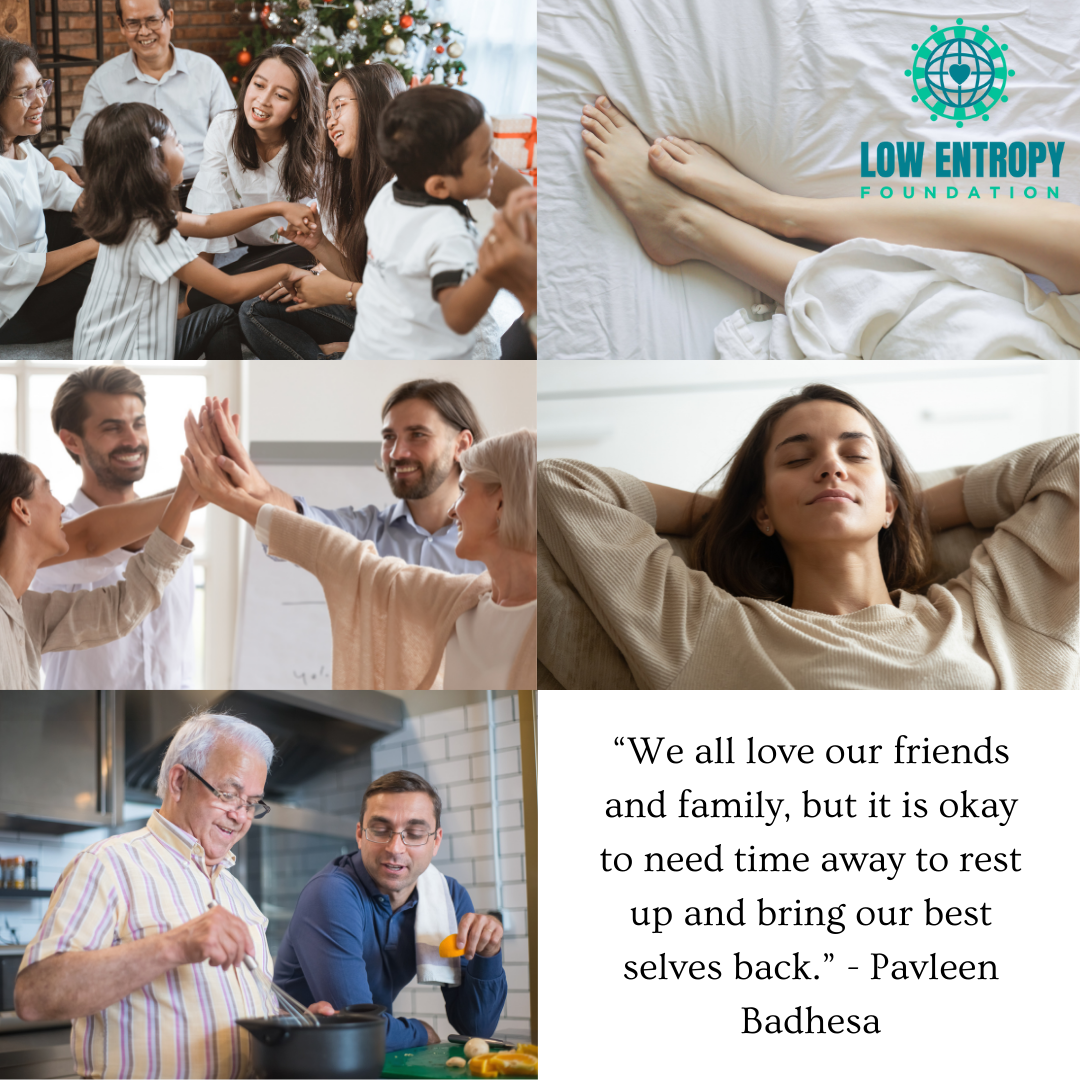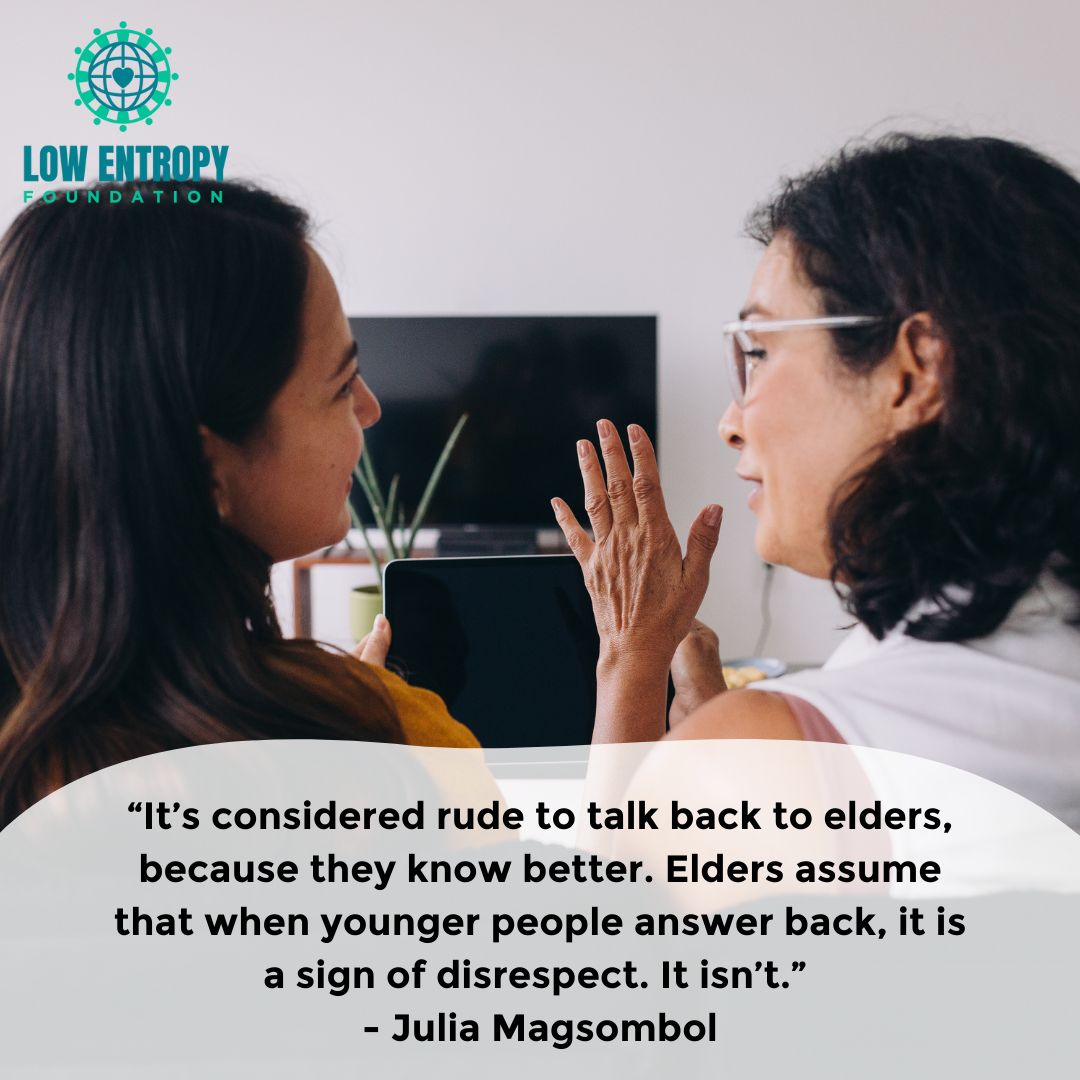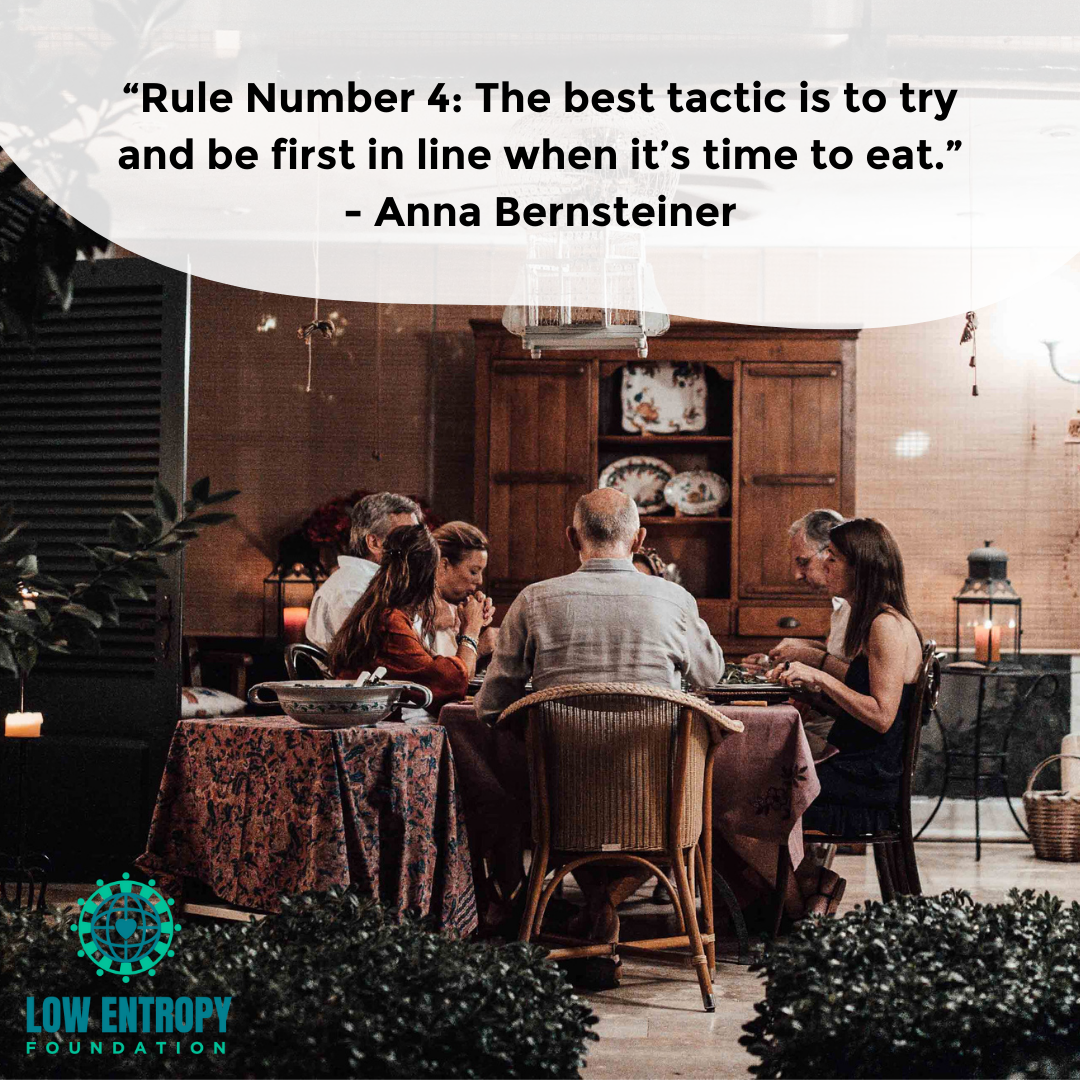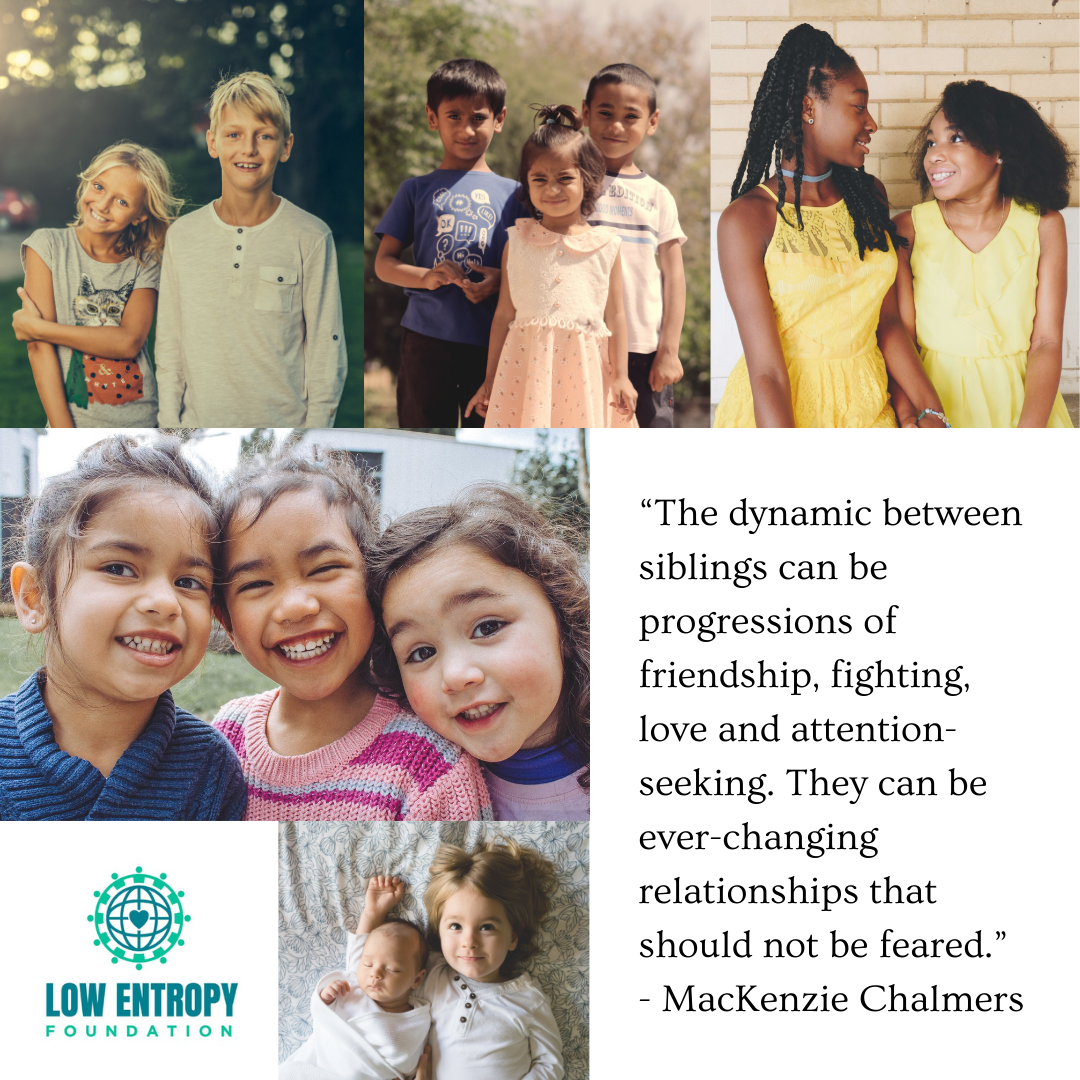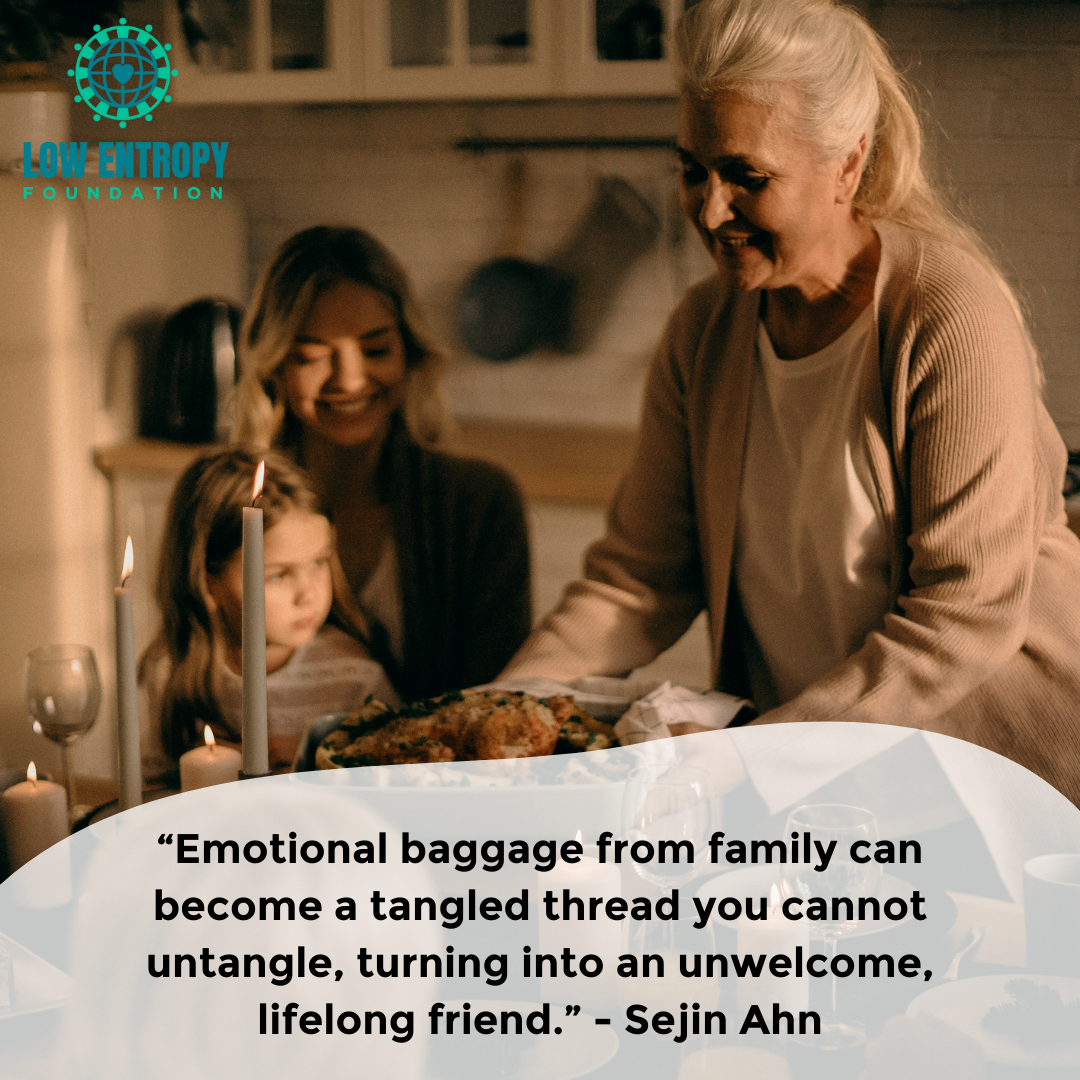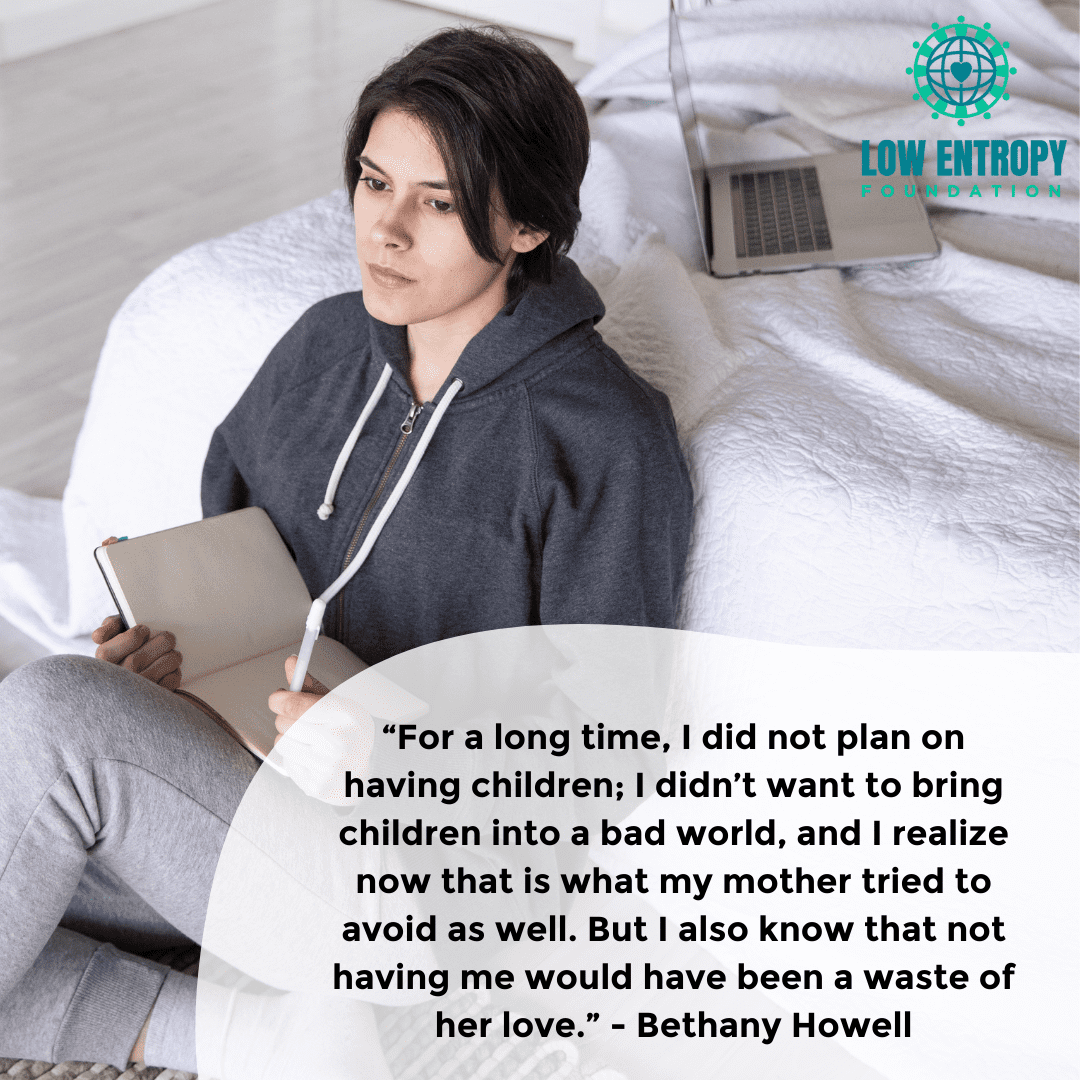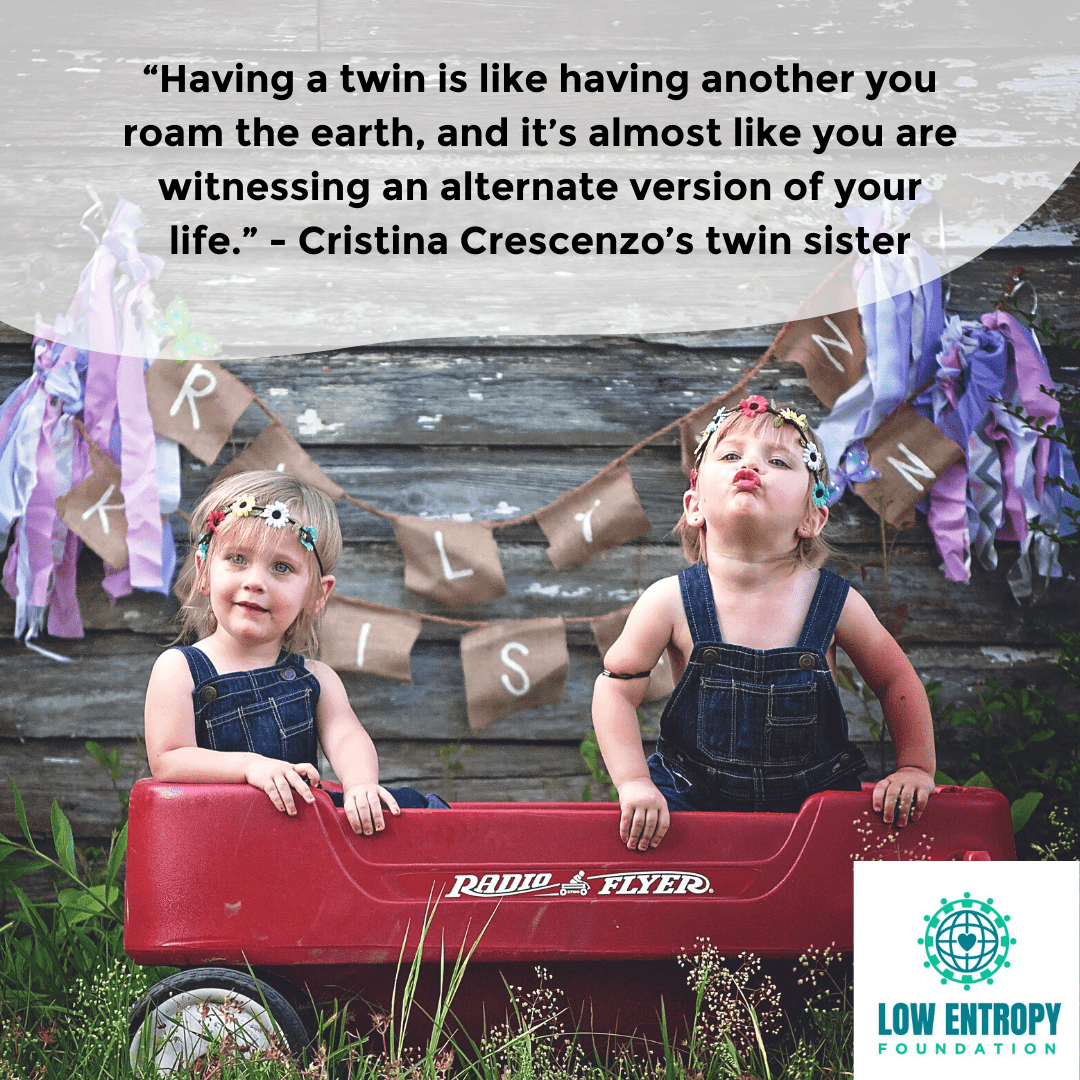Lori Stevenson (she/her/hers), Low Entropy Volunteer Writer
A number of years ago a colleague uttered words that have forever stuck with me and changed my life: “You cannot pour from an empty cup.” These words are so simple and so true. In today’s society, the demands on us are almost never-ending: no matter which way we turn, something or someone is demanding our time, attention, assistance, love, cooking skills, chauffeur services – you name it. And that is under the best circumstances! Throw in a global pandemic that, for many, involved working from home while trying to either dodge or educate children, and well, it’s no wonder that Statistics Canada reported in 2021 that 46% of Canadians are experiencing stress levels that are higher than they were pre-COVID.
In a society that views busyness and a never-ending schedule of commitments almost like a badge of honor, many of us – despite the abundance of knowledge and research out there that extols its virtues – still view self-care as an indulgence: something that happens once in a while, or on a special occasion, or as a reward for attaining that sought-after promotion or reaching a goal. For some, it may be in the back of our minds, something we know we should do, if only there were a few more hours in the day. A recent study by Birchbox and Kelton Global found that only 39% of men and 32% of women regularly make time for self-care. If you are doing nothing to care for yourself and fill your own cup, how can you give the best of yourself to others? It is time to make self-care a regular part of your routine.
We all know the obvious tenets of self-care – a healthy diet, enough sleep, regular exercise – and if you are not already on top of these, this is an easy place to start. The benefits will speak for themselves in no time at all. Let’s consider these the foundation, the “must haves.” They keep your body going, give you life force – but do they bring you joy? Will they fill your cup? (Okay, for some out there, yes – a sweaty session at the gym brings you joy, but many of us just grin and bear it!)
Once you have the basics down, it’s time to find things that you can do for yourself that will bring you enjoyment, happiness, fulfillment, peace, or just a few minutes of quiet time. Take a few minutes to reflect on what these things might be – what did you enjoy doing to unwind before you had all of the responsibilities and demands on your time that you do now? What have you been really wanting to spend time on? What do you want to learn to do? Jot them down. There aren’t enough hours in the day, we’ve established that already – so how on earth are you going to find time to fit in even one of these activities? I have some tips and suggestions that may help.
- Schedule it. This is important! YOU are important! Treat yourself at least as well as you do your work colleagues, and schedule time for yourself. Be creative and flexible – for example, I have activities that I schedule in daily, weekly, monthly and quarterly. Stick to this time; hold it sacred.
- Set boundaries. If you’ve decided that you love to read and want to do this for 30 minutes every day, talk to your family. Let your children, spouse and others know that this half-hour a day is really important to you, it makes you happy and is something that you need to do. Ask them to respect this 30 minutes and not disturb you, or turn it into a family affair where everyone spends some quality time with a book.
- Layer activities. Look for opportunities to multi-task. Listen to a personal or professional development podcast while you walk the dog or go for your morning run. Learn a new language over your morning coffee or on your commute. Listen to an audio book or catch up on your favorite reality TV show while cooking dinner.
- Unplug. Track your screen time for a couple of days. If you are surprised by how much time you spend surfing or scrolling through social media, commit to cutting back. Even snatches of a few minutes gained here and there by putting down your device can turn into an act of self-care. Head out of the office for a quick walk. Do a quick body scan meditation – you can do this in your office, at the coffee shop, on the bus or train – no one will even know! Stretch. Call a friend for a quick hello.
Not only do all of these actions release our brain’s feel-good chemicals – increasing our general happiness and sense of well-being – but doing something only for you, something that makes YOU feel good, can bring you energy, comfort and satisfaction, which is regenerative and restorative. What will you do to fill your cup?
—
My name is Lori Stevenson and I am a management professional living in the beautiful Okanagan. In my spare time I enjoy reading, writing, yoga, teaching myself Spanish and walking my dogs. I am pleased to share my ideas, thoughts and knowledge here with the Low Entropy community!







